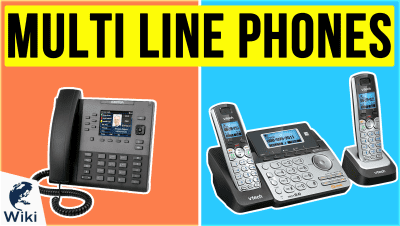What Does X Mean In Texting? - 35 Common Expressions
The first text message was sent in 1992. Since then, texting has developed into a form of communication different from any other. Text messages tend to be short and to the point. Because of the value put on brevity, a number of abbreviations have become commonplace among texters. In this guide, we will explain the meaning behind some useful expressions. This video was made with Ezvid Wikimaker.
Some Common Texting Terms
| BRB | Be Right Back |
| FWIW | For What It's Worth |
| IMHO | In My Humble Opinion |
| ISO | In Search Of |
| OMG | Oh My God |
| NSFW | Not Safe For Work |
| IRL | In Real Life |
| SMH | Shaking My Head |
| ROFL | Rolling On the Floor Laughing |
| ASL | Age, Sex, Location |
| AMA | Ask Me Anything |
| BFF | Best Friends Forever |
| IDK | I Don't Know |
| IKR | I Know, Right? |
| LMK | Let Me Know |
| TBH | To Be Honest |
How Do People Text?
In the beginning, texting was almost exclusively done through a service called Short Message Service, or SMS. While SMS is still common today, it's no longer the only way to text. Smartphones with data connections give their users access to several alternatives. Many people have turned to Internet Protocol-based apps like WhatsApp and Facebook Messenger.
Is Texting Killing Language?
Text Message vs Voice Call
In some situations, sending a text is the best thing you can do. Other times, it's worth actually picking up the phone and making a call.
| Text | Call | |
|---|---|---|
| Sending contact Info | ||
| Having a long conversation | ||
| Communicating from a noisy place | ||
| Organizing plans with a group | ||
| Communicating while driving |
Is Text Talk a Good Thing?
As long as you don't try to use these expressions while writing a legal document or scholarly paper, there's no harm in saving yourself a few keystrokes. So go ahead and try these terms out the next time you text your friends or update your Facebook status. Your BFFs will know what you mean.
In Depth
The advent of online chatting and text messaging has had a profound effect on human language. Number pad keyboards, touch screens, limited numbers of characters and just plain laziness have led to a new plethora of expressions and abbreviations. For the uninitiated, these jumbles of letters and numbers can be confusing. For people wanting to learn, here's a look at some of the most common texting expressions, explained.
One of the most common phrases, BRB turns up in everything from text messages to blog posts. The abbreviation stands for "be right back." People commonly use it to excuse themselves from a conversation for a brief period.
Most commonly, F.W.I.W. stands for "for what it's worth," an expression used to offer sympathy or opinion. The similar phrase I.M.H.O. represents "in my humble opinion." Users say it to preface a personally held belief. The abbreviation IRL stands for "in real life," a common way of delineating how someone acts or behaves off the internet and in day to day life.
Users say it to preface a personally held belief.
I.S.O., in an internet context, stands for "in search of." The abbreviation, however, appeared long before the internet, and often turned up in newspaper want or personal ads. It also gave rise to the popular TV program with Leonard Nimoy. J/K usually appears after a scathing joke. It stands for "just kidding," as a way of making clear the objective of humor. People often respond to jokes with L.M.A.O., a condensed way of saying "laughing my ass off." LOL is another common response, meaning "laughing out loud."
Often used as a response to a shocking statement or event, OMG stands for "oh my god." When responding to a dispiriting comment or happening, FTW means "f*ck the world," and signifies anger or despair. The term props alludes to a compliment or earned respect. It derives from "proper respect" or other deserved recognition.
When sending a sensitive article or picture, such as one containing nudity, wise internet chatters will use NSFW to preface it. Short for "not safe for work," the phrase indicates content such as nudity best reserved for private consumption. Responding to a comment with IDC generally abbreviates "I don't care" into shorthand. Used as a sign of frustration, RTFM stands for "read the f*ing manual." People will generally use the phrase in response to a question they find obvious to answer or stupid.
When sending a sensitive article or picture, such as one containing nudity, wise internet chatters will use NSFW to preface it.
The popular abbreviation SMH represents "shaking my head." It is usually used as a way of expressing disapproval or shame. Someone might also add B.I.S.L.Y. to a SMH comment as a term of endearment. B.I.S.L.Y. abbreviates "but I still love you." Responding with R.O.F.L. to a funny or amusing comment shortens "rolling on the floor laughing." Users might also use the popular variation, R.O.F.L.M.A.O. which extends the phrase to "rolling on the floor laughing my ass off."
The phrase O RLY in a chat or text message is simply short for "oh, really?" One of the oldest phrases to come out of the internet age, ASL asks for "age, sex and location." WUT, or WAT, is an abbreviated form of the word "what." If someone responds to a comment by simply saying K, he shortens the word "OK" to a single letter.
Using the expression M8 endears someone as a friend. The term shortens the word "mate," often used in Europe or Australia as a synonym for friend. A more obtuse expression in the internet age, 403 simply means "don't ask." The term derives from the error message when trying to access restricted or forbidden content on a website. When someone says DBA in conversation, the abbreviation refers to the phrase "don't bother asking." Rising from the popularity of Twitter, the word RT shortens the term "retweet," a way of sharing someone's tweet in a viral way.
Using the expression M8 endears someone as a friend.
AMA entered the vernacular thanks to the popularity of the website Reddit. The term stands for "ask me anything," a popular feature on the site among users. Commenting with FUD abbreviates "fear, uncertainty, doubt" as an expression of insecurity. STBY can have multiple meanings, including "stand by" or "sucks to be you."
When TFH appears on a Facebook comment or other thread, someone has called the discussion the "thread from hell," usually for the explosive rhetoric and insults involved. Seeing XOXO in a message symbolizes the same thing it always did, even in old letters and greeting cards: that someone has sent hugs and kisses. Referring to a NUB or NOOB is slang for "newbie" or someone new to a conversation or site. People use the term BFF to mean "best friends forever," as a sign of endearment.
Learning these basic texting and internet expressions should help even the most inexperienced user to understand and follow at least a basic conversation. Of course, terms may fall in and out of vogue, as texting culture continues to shape the way we communicate with one another.















